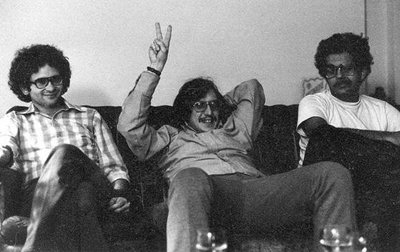Interview with Les Perelman
You have influenced the national dialogue on testing. Have you had any threats from the other side or from crazies?
I have had some second-hand flack from Mark D. Shermis, the principal investigator of the study that claimed that machine graders could replicate human readers. I have published two critiques of his methodology and findings (Perelman 2013) and called for him to retract his claim. He is quoted in The Chronicle of Higher Education (Kolowich 2014) as saying that he never reads anything I write. I find such an attitude very strange in someone who used to be a Dean of a School of Education.
Did you feel like you fit at MIT? Did it bring out your number-crunching nerdy side?
I love nerd culture, and feel very lucky to have been at MIT. I have taught classes with computer scientists and learned a lot from them, especially Hal Abelson, who is a superb teacher and one of the founders of the Creative Commons. I cherish the MIT Nerd Pride pocket protector he gave me.
Where did you grow up? How did that influence you?

A young Les Perelman (middle) with two friends
I grew up on Fairfax Avenue in Los Angeles, near West Hollywood. My high school was almost entirely Jewish and very exceptional. A significant number of my friends were either red diaper babies or children of Holocaust survivors. The fathers of four of my friends fought in Spain in the Abraham Lincoln Brigade. One of them then served time in prison in the 1950s under the Smith Act until the Supreme Court ruled the Act unconstitutional. The father of another friend was an award-winning playwright who was blacklisted, and when I knew him was writing soap operas under a pseudonym. Two friends had elder siblings who died in the camps before my friends were born. That environment, the Cuban Missile Crisis, the Civil Rights movement, and the Vietnam War have all informed my value system. I believe in social justice and equality and that education, particularly free public education, is a powerful tool for achieving these goals. These experiences, along with my father having been a Hollywood accountant, have also made me very cynical about the corporatization of education and education decisions being made by MBAs rather than teachers.